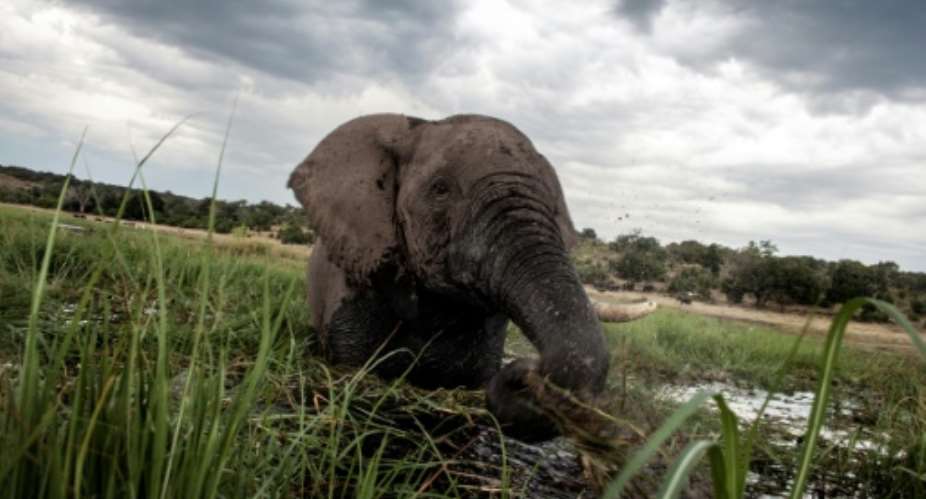Leaders from four southern African countries held talks in Botswana on Tuesday to better manage the world's largest concentration of elephants, amid growing concerns over poaching, loss of habitat, and conflict with humans.
Botswana President Mokgweetsi Masisi, whose country has Africa's largest elephant population, told his fellow leaders that it was time the region comes up with a common strategy to manage the huge mammals.
"We cannot continue to be spectators while others debate and take decisions about our elephants," Masisi said in opening remarks in the northern town of Kasane.
"Conflict between elephants and people is on the rise as the demand for land, for agriculture and settlements is growing," he warned alongside the presidents of Namibia, Zambia and Zimbabwe.
It is "indisputable that the abundance of elephants comes with numerous management challenges for our region".
Landlocked Botswana has more than 135,000 elephants roaming freely in its unfenced parks and wide open spaces.
The government says populations have become unmanageably large in parts -- placing the animals on a collision course with humans.
The southern African region is also experiencing drought spells, which Masisi said were "placing even more pressure on our fragile ecosystems".
"This in turn requires us to adopt more active measures to manage our wildlife in order to secure the resources that they are dependent on for their continued survival."
Around two-thirds of the world's elephant population is found on the continent.
Botswana, Namibia, South Africa, Zambia and Zimbabwe are home to some of the largest populations of elephants, with ivory poaching leading to a drastic decline in some countries.
Over the past decade, the number of elephants on the continent has fallen by around 111,000 to 415,000, according to figures from the International Union for Conservation of Nature (IUCN).
Ivory from elephant tusks is illegally traded as part of a multi-billion dollar industry that extends from Africa to Asia and beyond.
The Botswana government is lobbying to end a strict ban on wildlife hunting which was imposed five years ago to protect wildlife in the country.
The controversial proposals, which must be debated by cabinet before becoming law, would overturn a hunting ban that was introduced by former president Ian Khama, who was an ardent conservationist.





 Former Kotoko Player George Asare elected SRC President at PUG Law Faculty
Former Kotoko Player George Asare elected SRC President at PUG Law Faculty
 2024 elections: Consider ‘dumsor’ when casting your votes; NPP deserves less — P...
2024 elections: Consider ‘dumsor’ when casting your votes; NPP deserves less — P...
 You have no grounds to call Mahama incompetent; you’ve failed — Prof. Marfo blas...
You have no grounds to call Mahama incompetent; you’ve failed — Prof. Marfo blas...
 ‘Newly installed train collided with unmanned vehicle stationed across the rail ...
‘Newly installed train collided with unmanned vehicle stationed across the rail ...
 2024 elections: NPP creates better policies for people like us; we’ll vote for B...
2024 elections: NPP creates better policies for people like us; we’ll vote for B...
 Don’t exchange your life for wealth; a sparkle of fire can be your end — Gender ...
Don’t exchange your life for wealth; a sparkle of fire can be your end — Gender ...
 Ghana’s newly installed Poland train reportedly involved in accident while on a ...
Ghana’s newly installed Poland train reportedly involved in accident while on a ...
 Chieftaincy disputes: Government imposes 4pm to 7am curfew on Sampa township
Chieftaincy disputes: Government imposes 4pm to 7am curfew on Sampa township
 Franklin Cudjoe fumes at unaccountable wasteful executive living large at the ex...
Franklin Cudjoe fumes at unaccountable wasteful executive living large at the ex...
 I'll 'stoop too low' for votes; I'm never moved by your propaganda — Oquaye Jnr ...
I'll 'stoop too low' for votes; I'm never moved by your propaganda — Oquaye Jnr ...
